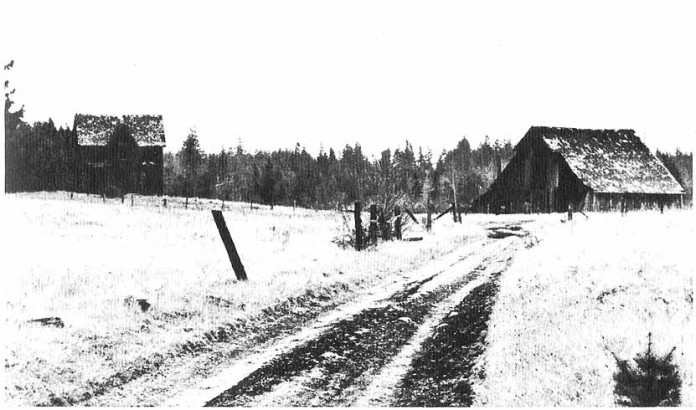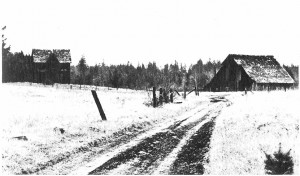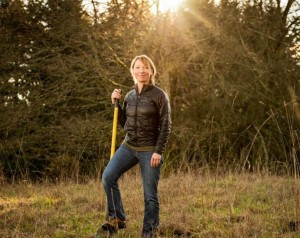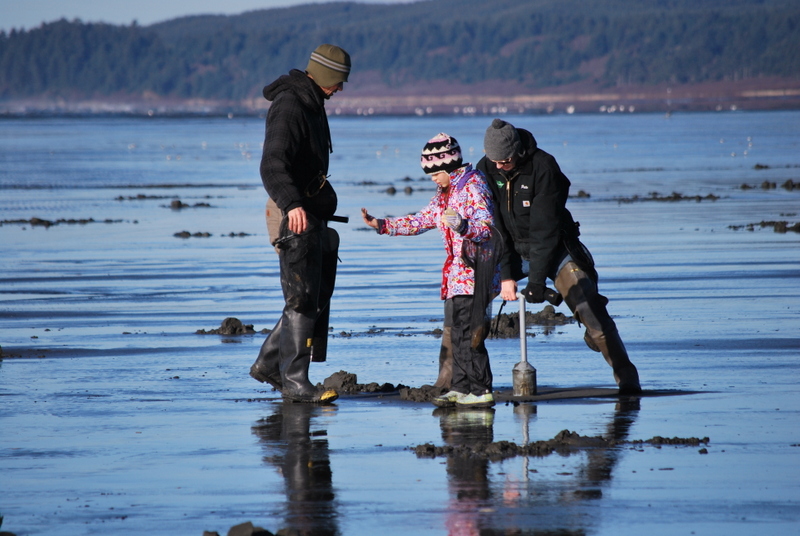
Submitted by The Evergreen State College

Greece, Turkey, France and Spain are all known for their archaeological treasures.
But, Tumwater?
This July and August Evergreen faculty member and Stanford-educated archaeologist Ulrike Krotscheck, Ph.D., will coach 16 Evergreen students on a dig in Tumwater that could shed new light on Washington and Thurston County history.
Between July 29 and August 27, the students will have the first opportunity to study the George Washington Bush farm since 2009; during that month they will search for artifacts belonging to or providing information about this original Pioneer family.
George Bush, a free man of African and Irish heritage, along with his German-American wife Isabella and their children, led a wagon train west from Missouri with the hopes of settling in Oregon Territory. Driven North by the Oregon “Lash Laws,” the Bush family became one of the first families to settle in the Tumwater area in 1845. They staked a land claim at the South end of the Puget Sound, where they soon became a welcoming stop for settlers en-route to Seattle and Tacoma. By 1850, they had developed their thriving farm in Tumwater and were known as one of the most generous families in the region. But men of color could not legally own land, so the Washington Territorial Legislature, on March 17th, 1854, requested that the United States Congress grant George and Isabella the land they had successfully settled and farmed. The resolution passed, setting a state and national precedent.

The Bush Homestead is now a Community Supported Agriculture (CSA) farm owned by Kathleen and Mark Clark. The Clarks were instrumental in the creation of the field school, with the aim of increasing the history’s visibility; they had set up an informational website, but wanted a more thorough and scientific investigation, which led them to partner with Krotscheck and Evergreen. “They want the artifacts displayed,” said Krotscheck, who is also partnering with the Northwest African American Museum, Thurston County Historic Commission, Tumwater Historic Preservation Commission, the Squaxin and Nisqually Tribes and Olympia School District to disseminate new findings about the Bushes.
The excavation will likely unearth small household objects that will provide clues to the Bushes daily life and activities. “We can learn a lot about their lives from their dishes and glassware; what they were eating, what their trading connections were, etc.” She added that the work won’t be glamorous. “Mostly we will be dealing with trash – the things that were broken or thrown away.” In fact, Krotscheck said, “Most findings at archaeological sites from all over the world are things that were left behind or thrown away.” While such finds may appear less valuable than pieces in museum displays, the context of the artifacts is what gives them their significance, Krotscheck explained.
The students’ first task will be site clearing; they will then spend two days a week in the field and two days a week analyzing finds in the lab. At the program’s end they will place geotextile cloth in the units they’ve dug, and backfill them to protect any lower strata and to delineate the limits of the 2015 field season.
Krotscheck, who often spends summers with peers, digging in Europe, looks forward to the local project, to mentoring students, developing open forums for scholars and community members, and to hosting observers on public tours the afternoons of August 5, 6, 12, 13, 19 and 20. “People think archaeologists dig to uncover the past,” she said, “but I think a more important goal is to learn from it.”
Read more at the Evergreen blog related to the Bush Homestead project.




















































